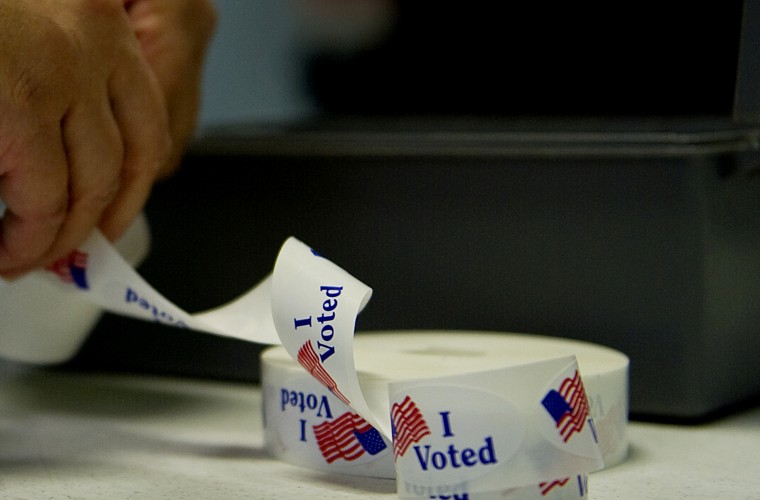More than 40,000 Marylanders will have their right to vote restored after the state Senate voted Tuesday for a bill that re-enfranchises felons.
Lawmakers originally passed the bill last year, but it was vetoed in May by Republican Gov. Larry Hogan. Last month, the House voted to override Hogan’s veto. With Tuesday’s vote, which was 29-18, the Senate did likewise. Both chambers are controlled by Democrats.
The bill will allow felons to vote upon getting out of prison, rather than having to wait until they’ve completed parole and probation.
Currently, more than 63,000 Marylanders are disenfranchised because of past felonies, according to numbers compiled by The Sentencing Project. Around 65 percent of them are African-American.
RELATED: Say cheese: New Hampshire to take pics of voters without ID
The vote came after a vigorous campaign organized by a coalition of voting rights, criminal justice, and minority groups.
“The Maryland General Assembly opened up our democracy to the thousands of Marylanders who have returned home from prison and now have the right to vote. I know from experience that this legislation will have a powerful impact on our lives and in our communities,” Perry Hopkins, a formerly incarcerated citizen who helped organize support for the bill, said in a statement. “From the minute you are released from prison, you are able to pay taxes, you are working to reintegrate back into society in a productive way, and you deserve the full rights of citizenship. It’s just that simple. And today the Maryland General Assembly did the right thing and restored our rights.”
Meanwhile, Hogan criticized the move as out of line with the wishes of most Marylanders.
“29 partisan state senators just voted to ignore the overwhelming majority of Marylanders by granting current felons the right to vote,” the governor wrote on Facebook. “Only a tiny, radical minority supports this idea. But they did it anyway. They don't seem to care what most Marylanders want.”
The vote was not without controversy. One Democratic senator who backed the override bill, Craig Zucker, had also voted for it as a member of the House. He was appointed to the Senate in the period between the House and Senate votes to fill the seat of a retiring senator. The Senate vote on the bill was delayed until Zucker was sworn in, because his vote was needed.
Republican opponents of the bill have suggested that it was improper for Zucker to vote on the bill twice, and said he should have recused himself. An opinion from the office of the state’s attorney general released last week said that there appeared to be no constitutional problem with Zucker voting twice, but didn’t definitively settle the matter.
Asked whether Hogan was considering legal action to challenge the vote based on Zucker voting twice, a spokesman for the governor said he would respond shortly.
Maryland’s move is the latest in a series of efforts by several states, including Virginia and Kentucky, to make it easier for felons or former felons to vote. Around 5.8 million Americans, disproportionately African-Americans, are currently disenfranchised because of past crimes.
